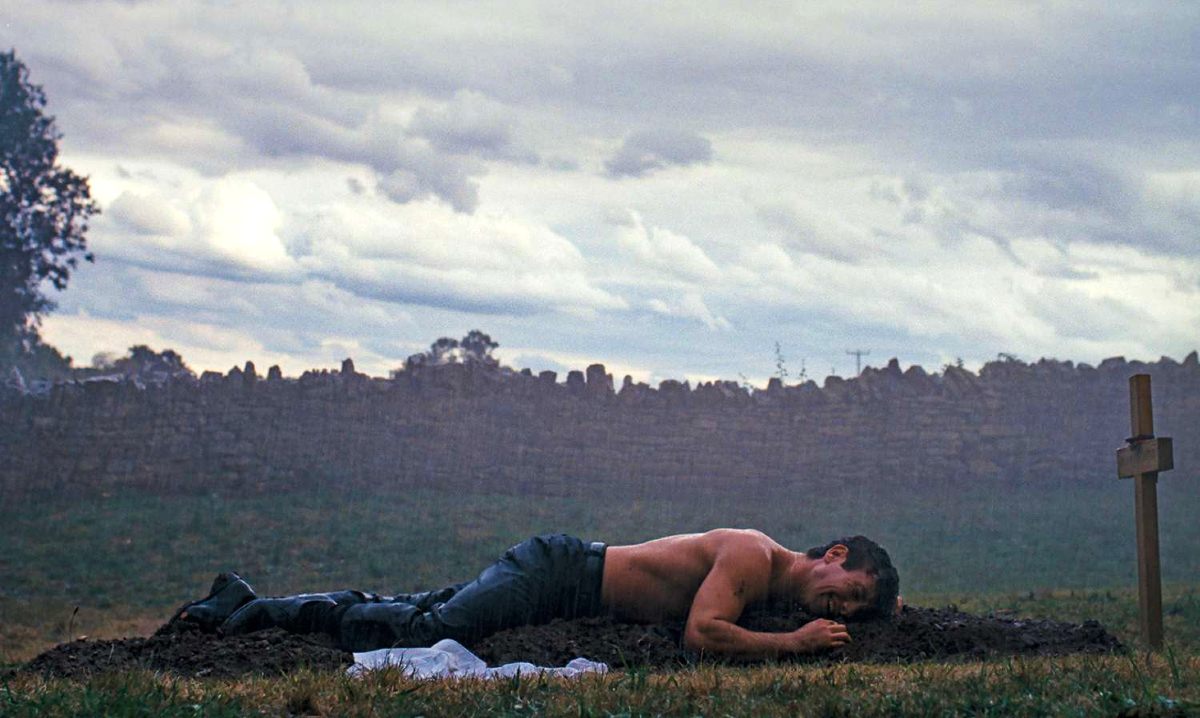‘Saltburn’ Totally Grossed Me Out, but I Can’t Stop Thinking About It

Very few movies leave me speechless. Then again, very few movies contain as many graphic depictions of depravity and desperation as Saltburn, the latest film from Oscar-winning screenwriter, producer, and director Emerald Fennell.
By the time Oliver Quick (Barry Keoghan) danced a naked jig through his hard-won mansion, I was thoroughly rattled. Not-so-gentle readers, I am not a prude. I have written things that could curl hair, and I’m no stranger to reading or watching subversive material. However, there was something about Saltburn that I found equal parts revolting and fascinating.
Four scenes in particular were so uncomfortable to watch that I had to look away, hand clamped over my mouth, eyes wide with disbelief. I realized I felt nauseated, but it wasn’t just the blood, sweat, and bathtub emissions that grossed me out; it was the naked and animalistic greed, longing, and elitism that Fennell holds up to the light for the audience to examine. The disturbing scenes are a symptom, not a cause.
Early on, the movie draws us in with a compelling story reminiscent of Patricia Highsmith’s novel The Talented Mr. Ripley. Oliver comes across as pathetic, but still waters run deep … and cold. Felix (Jacob Elordi), with his effortless rich boy privilege, preppy style, and strapping good looks, is as easy to love as he is to hate. The way he takes Oliver under his wing is more like a man adopting a pet than friendship, and we sense that he’ll drop Oliver the second he gets bored.

The relationship becomes even more unbalanced when the pair arrives at Felix’s sprawling family estate for summer break. The Catton family is a caricature of the British one percent: Mother Elspeth (Rosamund Pike) treats her friends like disposable accessories, father Sir James (Richard E. Grant) is quick to pull out the checkbook when a guest outstays their welcome, and sister Venetia (Alison Oliver) is so spoiled and filled with childish ennui that she’s positively itching to start drama with Felix’s new sidekick.
It’s a lot of fun to watch the Catton family scenes even if—or perhaps because—they are horrible people. The breezy way they decide to throw a party with hundreds of guests gives us a glimpse into the sort of wealth most of us will never come close to achieving. The story picks up momentum, and the wheels come off the bus in a slow yet spectacular way, beginning with the first of the four pivotal scenes I mentioned above.

The bathtub scene
The first scene that made me squeamish was the infamous bathtub scene in which Oliver sees Felix masturbating in the tub, then sneaks in and drinks the bathwater as it drains—but he doesn’t just drink it; he revels in it, smearing the liquid over his face, slurping it into his mouth, and inserting his tongue right into the drain. Um … ew.
Perhaps it was the simple act of putting your tongue inside a bathtub drain that got me, but get me it did. I cringed, groaned, averted my eyes. If the movie had been a smidgeon bad up until then, I might have turned it off. Instead, I couldn’t wait to see what happened next. Odd!
The vampire scene
Oliver ingratiates himself into the Catton household by seducing each family member in different ways. In the case of Venetia, it’s actual sexual seduction, and the scene where they meet up outside one night prompted sounds from my throat that I’ve honestly never heard before.
Essentially, Venetia tells Oliver that it’s not the right time of the month for them to be intimate, but that doesn’t stop our creepy antihero. “Lucky for you, I’m a vampire,” he tells her before performing oral sex on her. It’s difficult to watch, but the scene paints a very clear portrait of how far Oliver will go to leech off the Catton family. In an interview with Deadline, Fennell said she considers Saltburn to be “a vampire movie,” with Oliver feeding off of those whose lifestyle he covets.

The Farleigh encounter
When Felix’s American cousin Farleigh (Archie Madekwe) gets in Oliver’s way, he stops at nothing to get him expelled from the estate. One night, he slips into Farleigh’s room and essentially threatens him if he doesn’t behave. The act is problematic because Farleigh doesn’t seem to consent to the sex Oliver initiates with him. There’s an implication of rape because these characters do not like one another at all, and the power dynamic is completely unbalanced. It even seems like Farleigh could be weeping, but it’s hard to tell in the dimness.
The next morning, Farleigh is kicked out after Oliver frames him for stealing, proving that he used sex as a mere ploy to distract his opponent.
Finally, the grave-humping scene
After Felix shuffles off this mortal coil with help from Oliver, the latter mourns his friend by visiting his freshly-dug grave. Sweet, right? WRONG. Suddenly, we’re watching in horror as Oliver strips off his clothes and proceeds to thrust into the dirt, a final act of desperate ownership that demonstrates how depraved the character truly is.
Speaking with Variety, Keoghan said the grave scene wasn’t scripted, but Fennell gave him a closed set to “see what the next level of obsession was.” The resulting scene is a showstopper and it achieved what the director set out to do: illustrate the bizarre things people do when they’re overcome by powerful emotions they can’t control.

Here’s the thing: parts of this movie are just plain nasty, and that’s the whole point. Fennell wants to make us feel something, whether it’s pleasure, horror, embarrassment, or even shame. After all, isn’t art supposed to pull deep-seated emotions to the surface of our consciousness? To help us understand ourselves and the human condition more thoroughly?
Perhaps that’s why I can’t stop turning the film over in my mind and thinking about those intense characters. Perhaps that’s why I’m already thinking about watching it again.
Saltburn is currently streaming on Prime Video.
(featured image: MGM)
Have a tip we should know? [email protected]